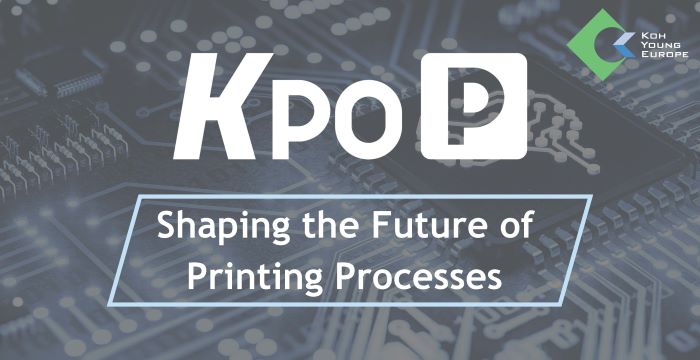
The missing link in semiconductor supply chain resilience
Indium Corporation strengthens critical materials supply chain amid rising geopolitical pressures.
Global discussions on semiconductor supply chain security have largely focused on wafer fabrication and chip production. But according to Indium Corporation President and CEO Ross Berntson, overlooking the materials segment of the chain risks introducing bottlenecks that could slow innovation in emerging technologies ranging from AI hardware to electric vehicles.
Metals such as indium and gallium play central roles in compound semiconductors, interconnects, power devices and thermal management. However, these elements are typically produced as byproducts of other base metals, leading to supply chains that can be complex and vulnerable to geopolitical or market disruption. In an email interview, Mr Berntson, Evertiq, dove deeper into the intricacies of the materials segment of the supply chain.
Supply chain resilience and security are increasingly in the spotlight, yet much of the focus is on semiconductor companies. How do materials science companies like Indium Corporation fit into this picture, and what risks could arise if their role is overlooked?
“When discussions about supply chain resilience arise, the spotlight often lands on chipmakers. But without the materials science companies that enable wafer generation, reliable interconnects, thermal management, and packaging, even the most advanced chips can’t make it to market,” Berntson told Evertiq.
And this is exactly where Indium Corporation fits in. The company form the bridge between raw materials and finished semiconductor devices – providing the metals and compounds for the compound semiconductor industry, to high-performance solder and thermal interface materials – everything that is needed to make semiconductor packaging and assembly possible.
“Our products are critical to the performance and reliability of chip production like gallium nitride (GaN), and the semiconductor packages that power everything from AI data centres to electric vehicles,” Berntson explained. “Overlooking the materials segment of the supply chain risks creating bottlenecks that could slow innovation and manufacturing.”
Global supply chains for critical metals are fragile, with geopolitical tensions affecting availability. Given recent global supply chain disruptions, how is Indium Corporation positioning itself to ensure a stable supply of critical materials for its customers?
Berntson says the company has taken a proactive approach to securing supply through diversification and long-term collaboration. One recent example is a partnership with a Canadian producer to extract gallium from existing refining streams, creating what the company describes as a more stable and traceable source of the material.
“At Indium Corporation, we understand that metals like indium and gallium aren’t just commodities – they’re strategic enablers of the technologies that drive modern life,” Berntson said. “This collaboration benefits everyone: our partner maximises the value of its resources, we secure reliable and responsibly sourced materials, and our customers gain confidence in the stability and pedigree of their supply.”
By working together across industries, Indium is helping to ensure that critical materials remain available for the innovations shaping our future. The company’s portfolio spans metals and compounds for compound semiconductor production, solder and thermal interface materials for chip packaging, and reclaim services to keep critical metals in circulation.
“In short, materials science is the foundation of semiconductor success, and Indium Corporation provides reliable materials and a robust supply chain to help fuel that success.”
Sustainability is the product strategy
As sustainability climbs corporate agendas across the electronics manufacturing industry, it is increasingly shaping product development. The shift is reflected at Indium Corporation — or, as Mr Berntson put it, “Sustainability is not a separate initiative at Indium Corporation; it’s central to how we innovate.”
Indium Corporation operates ISO 14001-certified environmental management systems across its global operations and has developed alloys and solder pastes that enable lower reflow temperatures and reduced energy use during production.
“We also engage closely with our suppliers to ensure the responsible sourcing of critical materials and compliance with global environmental and ethical standards. This approach aligns with our broader sustainability framework, which integrates environmental stewardship, social responsibility, and strong governance across every decision we make.”
Looking ahead, the company sees demand growth in applications with high thermal and power density requirements, including AI data centres, power modules and electric vehicles. This is reflected in the ongoing development of metal-based thermal interface materials, high-reliability solder alloys, and die-attach materials designed for next-generation power electronics.
“The technologies shaping the next decade – AI, quantum computing, and electric vehicles – demand materials that can handle higher power densities, greater thermal loads, and tighter performance tolerances.”
Rather than reacting to these shifts after the fact, Indium Corporation is working with customers earlier in the development cycle, aligning materials design with evolving device roadmaps.
“We believe that materials science changes the world, and we are proactively positioning ourselves to meet the advanced materials demands of these critical platforms with our proven high-performance products, superior customer support, and global presence and expertise,” Berntson said. “Ultimately, our role is to anticipate what’s next – to partner with our customers and co-develop materials that enable the next generation of innovation.”


